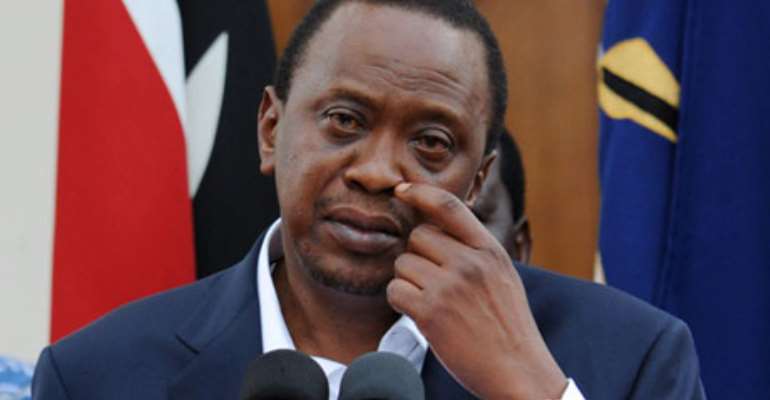Nairobi attack: It's all over, Kenya’s President declares

Kenya’s President Uhuru Kenyatta, in a televised address to the nation on Tuesday, said that the bloody four-day siege by Islamist militants at Nairobi’s Westgate shopping centre was over as five attackers were shot dead and 11 suspects were taken into custody by Kenyan security operatives.
Kenya has “shamed and defeated our attackers” but the “losses are immense”, he said, confirming that 61 civilians and six soldiers had died.
Kenyatta also declared three days of national mourning, starting on Wednesday.
As the clearing of the mall continues, Kenya is braced for the death toll to rise further.
Several bodies – including those of “terrorists” – are thought to be trapped under rubble after three floors of the building collapsed following a blaze on Monday, officials said.
Some 175 people were injured in the attack; 62 people remain in hospital and many others are being treated for shock and are undergoing counselling.
At least 18 foreigners are among the dead, including six Britons, as well as citizens from France, Canada, the Netherlands, Australia, Peru, India, Ghana, South Africa and China.
The militants stormed the Westgate centre on Saturday, throwing grenades and firing indiscriminately on shoppers and staff.
Somali Islamist group al-Shabab said it had carried out the attack in retaliation for Kenyan army operations in Somalia.
The president said he could not confirm reports that a British national and two or three US citizens were involved in the attacks, but he said forensic experts were carrying out tests to ascertain their nationalities.
Kenya’s Foreign Minister Amina Mohamed said the Americans were 18 or 19 years old, of Somali or Arab origin.
Her remarks have fuelled media speculation about the possible involvement of Samantha Lewthwaite, the widow of one of the men who carried out attacks on London’s transport system on 7 July 2005.
Al-Shabab, which is linked to al-Qaeda, has repeatedly threatened attacks on Kenyan soil if Nairobi did not pull its troops out of Somalia.
There are about 4,000 Kenyan troops in the south of Somalia as part of an African Union force supporting Somali government forces.
Al-Shabab is fighting to create an Islamic state in Somalia.
Despite being pushed out of key cities in the past two years, it remains in control of smaller towns and large swathes of the countryside.
UN special representative for Somalia Nicholas Kay called on Tuesday for a fresh surge in African troops to Somalia to counter an estimated 5,000 al-Shabab fighters.
